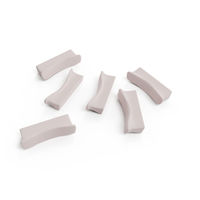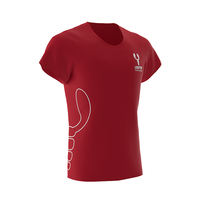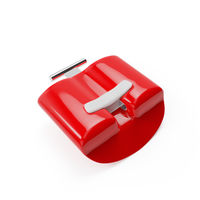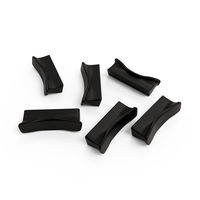Why Is Heart Rate Important?
Put simply, heart rate is important because it’s one of the main things that controls blood pressure. Blood pressure, at the end of the day, is what drives blood out to the peripheries, into the organs and ultimately makes sure that every part of the body that needs oxygen, nutrients and so on has access to them. This is called perfusion and actually something we’ve been talking about over the last few weeks. We can see it clearly if we look at the equation for blood pressure:
BP = HR*SV*TPR
HR = Heart Rate
SV = Stroke Volume (controlled in part by the starling mechanism)
TPR = Total Peripheral Resistance (controlled mainly by the diameter of the blood vessels which can contract and expand).
Here we can see that if HR is too low, BP will also be low, perfusion will decrease and organs like the brain and kidneys will begin to suffer.
What Controls Heart Rate?
Like most systems within the body, heart rate is part of a feedback loop, kind of like your central heating system at home, which measures some variable, compares it to a “normal range” and feeds back the information to the processes that control the variable. These mechanisms are part of one of the main functions of physiology which is homeostasis, simply, “keeping things the same”. Here’s a diagram that shows one of the important feedback loops that controls blood pressure, by controlling heart rate:
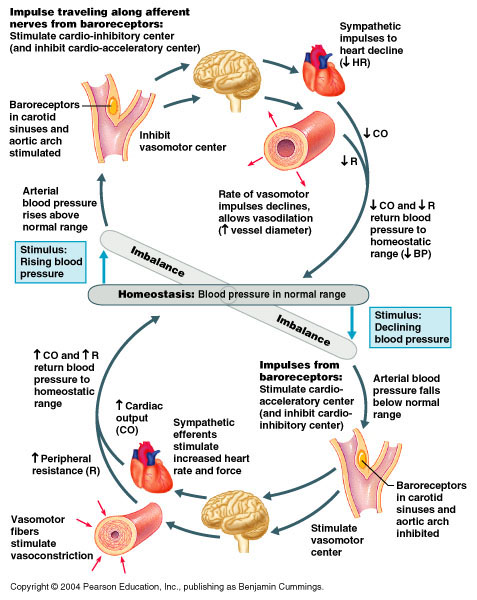
CO = Cardiac Output
R = TPR
Sympathetic = Sympathetic nervous System
Afferent = “going towards”
Efferent = “going away from”
Overall there are a lot of these homeostatic mechanisms that involve heart rate. Here are the most important of them for freediving:
1. Sympathetic vs Parasympathetic drive. The heart has its own internal pacemaker, originating in the sino-atrial node (SAN). This allows the heart to have coordinated electrical activity, and hence to beat in a regular, efficient way. The speed of this pacemaker is controlled by the Vegas nerve, a major component of the autonomic nervous system (ANS), which has both activating (sympathetic) and de-activating (parasympathetic) components. The ANS is the ultimate driver of heart rate - everything else that affects HR does so by affecting the activity of the SAN. Here’s a diagram showing how the SAN is involved in blood pressure regulation:
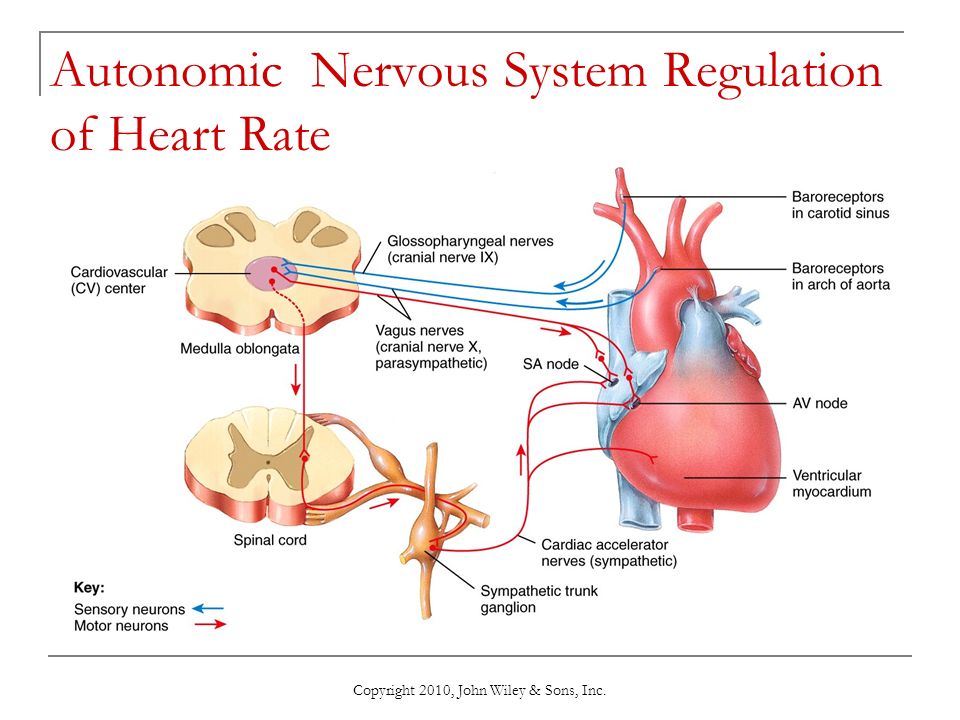
2. Mammalian Dive Reflex - Yes, that old chestnut again! The MDR actually permits a real departure from the normal range of values for BP, HR etc by allowing HR and peripheral perfusion to drop a long way below the norm.
3. Perfusion - Aside from the effect of TPR on blood pressure, and thereby on heart rate, there is also a direct effect of tissue hypoxia (low oxygen): This comes from the fact that when tissues are starved of oxygen (either because of breath holding or vasoconstriction), lactic acid and other metabolic toxins build up in the tissues and, ultimately, the blood. Chemoreceptors in the carotid bodies, aorta and brain detect these increases (and the decrease of oxygen) and drive an increase in heart rate to “wash out” the toxins and restore perfusion.
4. Endocrine System. We’ve all had some experience of a “racing heart”, maybe when we’re nervous. In this situation, the increase in heart rate is driven by the hormone adrenalin, released in response to physiological or psychological stress, which increases sympathetic drive.
How Does This Affect Me During And After Diving?
During a deep dive, the MDR really kicks in hard. Not only does heart rate drop to something like a third of its normal level, but peripheral vasoconstriction, as well as the external pressure of the water, also strongly decreases blood flow to the limbs, face and other extremities. All of this has the effect of dramatically decreasing the perfusion of (the majority of) body tissues. The partial pressure of oxygen in the blood as a whole also decreases significantly.
As we surface and take our first few breaths, the physiological changes inherent in the MDR reverse almost instantly: Blood comes rushing into the peripheries, the parasympathetic drive which has been keeping heart rate low is released and oxygen comes flooding back into the blood. The overall effect is a massive washout of all the CO2, lactic acid and other metabolic toxins that have been building up in the tissues during the dive. This is detected by the chemoreceptors in the brain, carotid bodies and aorta and results in a massive increase in sympathetic drive. Factor in the surge of adrenalin which might also accompany a feeling of success at having, for example, set a personal best or a new national record, and it’s easy to see why heart rate can go through the roof in the seconds and minutes following a big dive. The aim is to circulate as much clean, fresh, oxygen rich blood to the tissues as possible.

Another way to think about it is to consider what we expect to happen to the heart rate when we exercise. During a long dive we’re exercising pretty hard, particularly on the ascent. The heart rate we experience is really the result of a competition between the sympathetic drive associated with exercise, and the parasympathetic drive associated with the MDR. As soon as we surface, the parasympathetic drive disappears and the sympathetic drive becomes the clear winner. Because the “physiological debt” incurred by exercising for so long in a hypoxic environment is very large, it can take a long time (20-30 minutes) before the normal ranges of blood pressure, heart rate and blood chemistry are restored.
(c) www.freedive-earth.com

